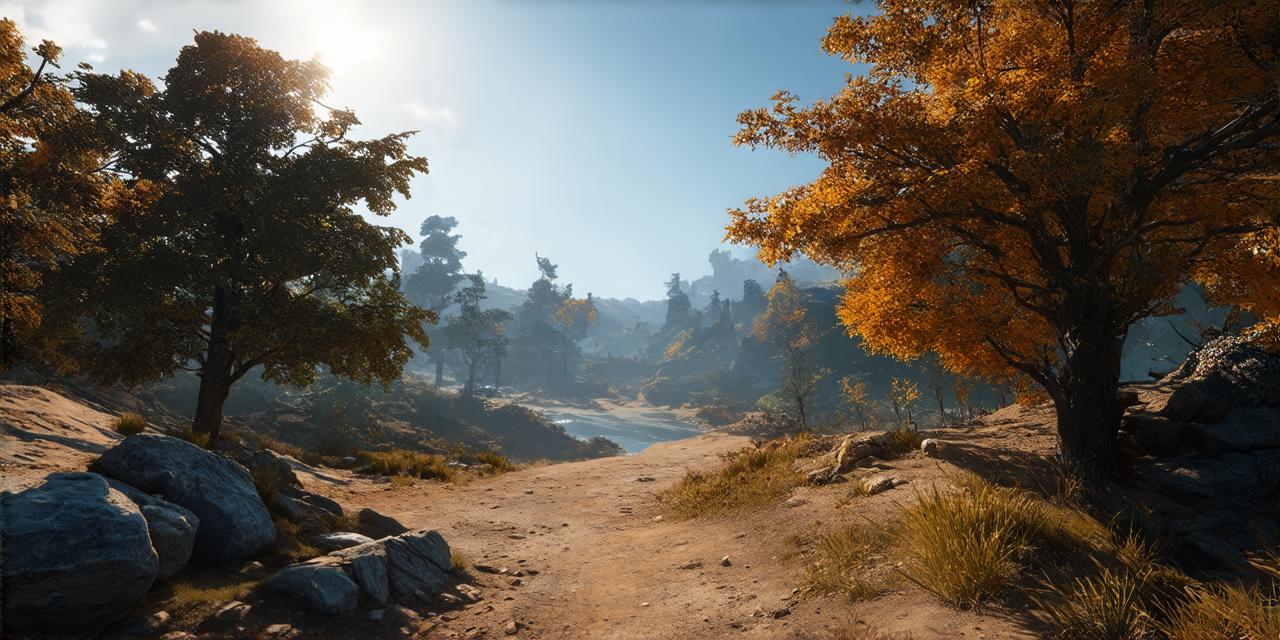Introduction: What is Unreal Engine?
Unreal Engine is a popular 3D game engine developed by Epic Games. It was first released in 1998 and has since been used to create some of the most iconic games in history, including Fortnite, Gears of War, and Batman: Arkham Knight. Unreal Engine uses a real-time rendering system that allows developers to create highly detailed and immersive environments in real time. This makes it an ideal tool for creating virtual reality (VR) and augmented reality (AR) experiences.
Why Use Unreal Engine for Unity Developers?
While Unity is a great platform for building games and interactive experiences, there are several reasons why Unreal Engine can be a valuable addition to an Unity developer’s skillset:
1. Visual Effects: One of the main advantages of using Unreal Engine is its ability to create stunning visual effects. With features like ray tracing, motion capture, and advanced lighting systems, developers can create realistic and immersive environments that were previously impossible to achieve in real-time.
2. Performance: Another advantage of Unreal Engine is its ability to handle complex scenes with ease. This makes it an ideal tool for building large-scale open worlds or highly detailed cityscapes.
3. Community Support: Epic Games has a dedicated community of developers and artists who contribute to the development of Unreal Engine. This means that there are plenty of resources available for learning and troubleshooting, including forums, documentation, and online courses.
4. Integration with Unity: While Unreal Engine is a separate engine, it can be easily integrated with Unity through plugins like the Unreal Editor plugin. This allows developers to use the best features of both engines in their projects.
Case Study: Using Unreal Engine with Unity for a Virtual Reality Experience
To illustrate how Unreal Engine can be used with Unity, let’s take a look at a case study by the team at Epic Games. In this project, they created a virtual reality (VR) experience called “Unreal Tournament” using both engines. The goal was to create a high-fidelity VR experience that would showcase the capabilities of both engines.
The team used Unreal Engine for its advanced rendering and lighting systems, as well as its ability to handle complex scenes with ease. They also used Unity for its easy-to-use game engine and its support for popular game development tools like Unity Asset Store. By combining the strengths of both engines, they were able to create a stunning VR experience that pushed the boundaries of what was possible in the medium.
How to Get Started with Unreal Engine for Unity Developers
If you’re interested in exploring Unreal Engine for your Unity projects, here are some steps to get started:
1. Install Unreal Engine: The first step is to download and install Unreal Engine on your computer. You can download the latest version from the Epic Games website.
2. Set up a new project: Once you have installed Unreal Engine, you will need to set up a new project. This involves creating a new folder for your project and selecting a template to start with.
3. Import your Unity assets: If you have already created some assets in Unity, you can import them into Unreal Engine using the Unreal Editor plugin. This allows you to use the best features of both engines in your project.
4. Learn the basics: There are plenty of resources available for learning how to use Unreal Engine, including tutorials, documentation, and online courses. Start with the basics and work your way up to more advanced topics.
5. Experiment and have fun: The most important thing is to have fun and experiment with different features and tools in Unreal Engine. Don’t be afraid to make mistakes and learn from them.
Summary: The Future of 3D Game Development
As technology continues to evolve, we can expect to see even more impressive 3D experiences being created using tools like Unreal Engine. Whether you’re a seasoned game developer or just starting out, there is always something new to learn and explore in the world of 3D game development. By embracing new technologies and expanding your skillset, you can create even more impressive projects and push the boundaries of what is possible.
